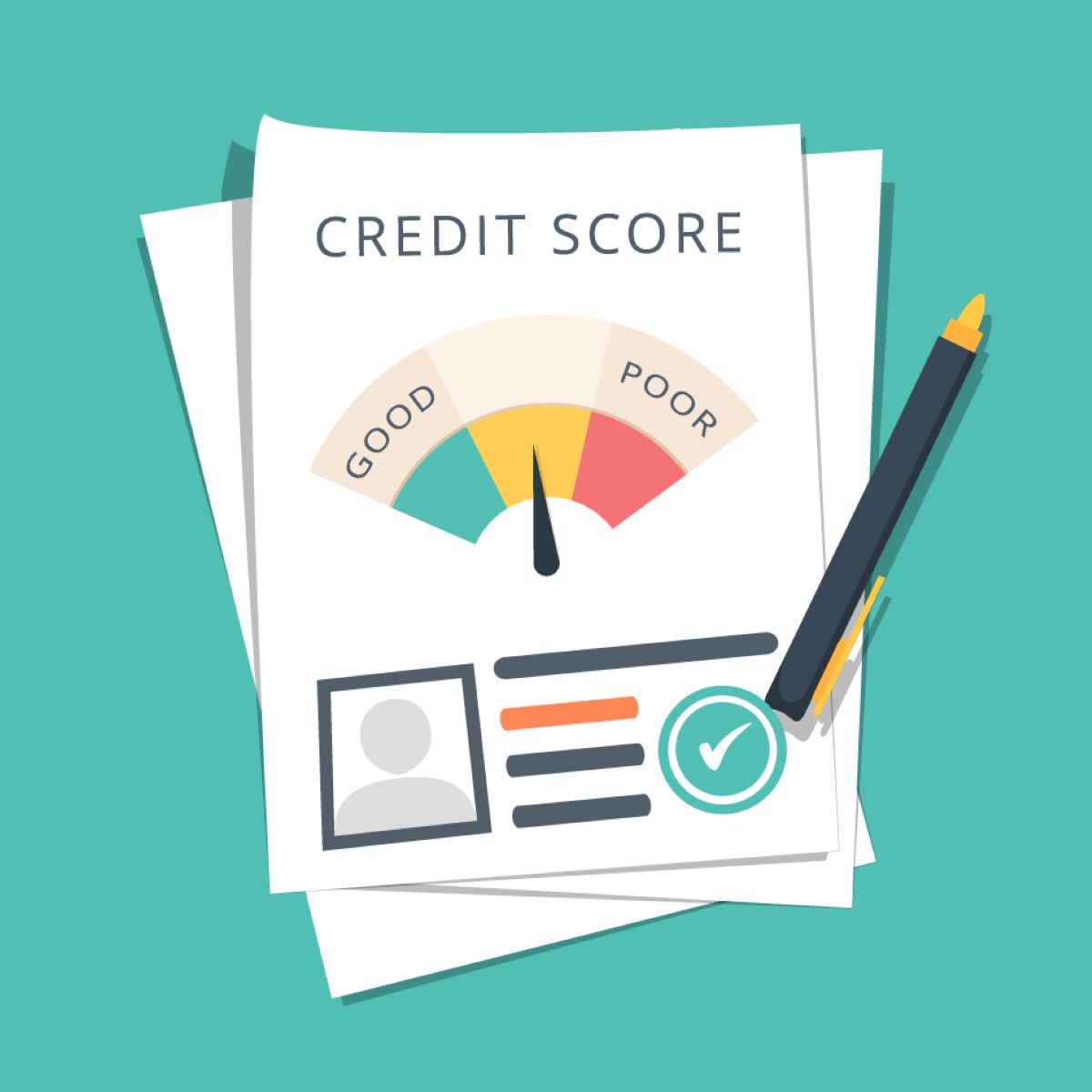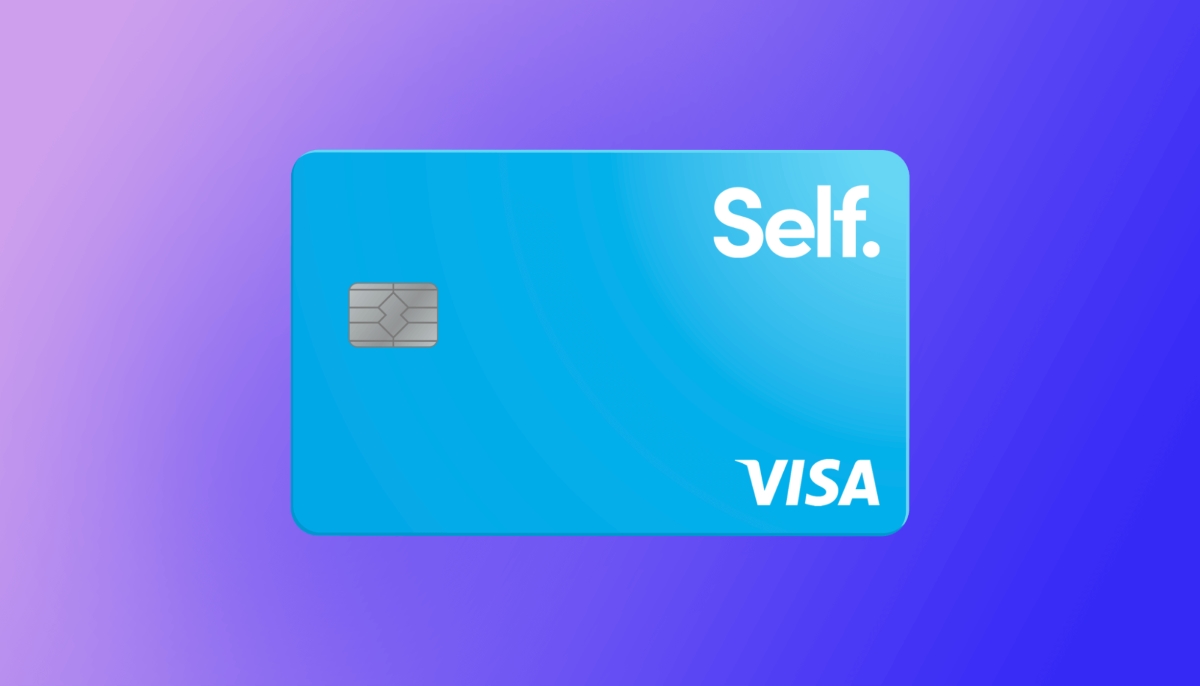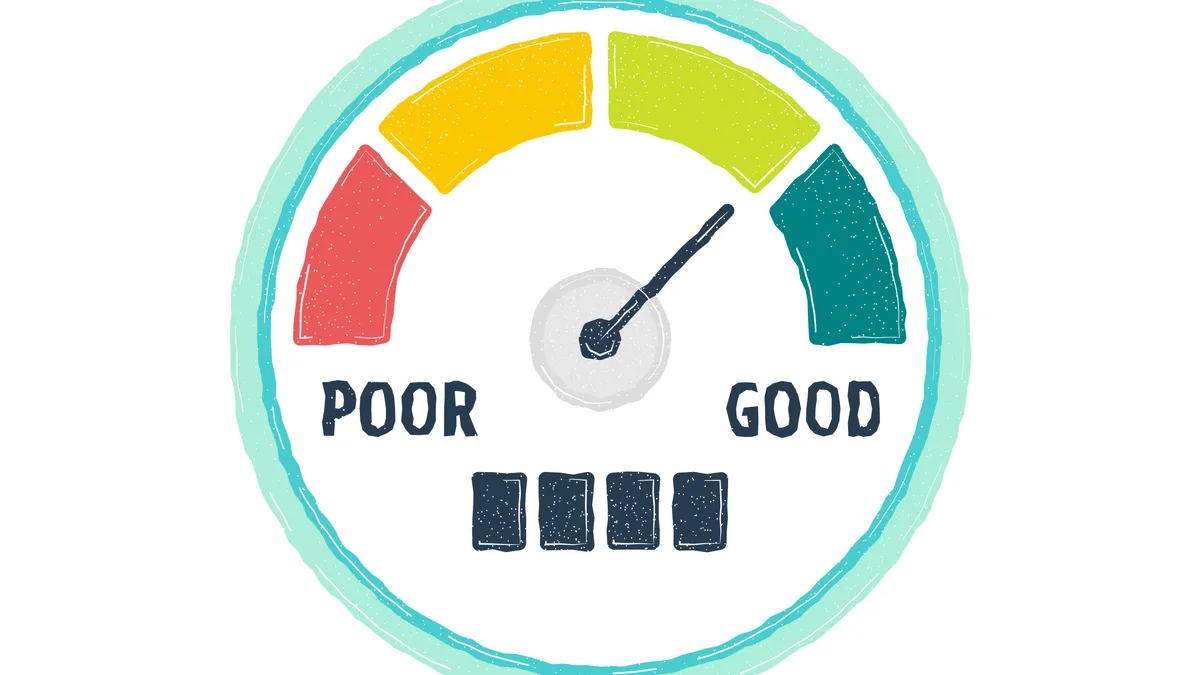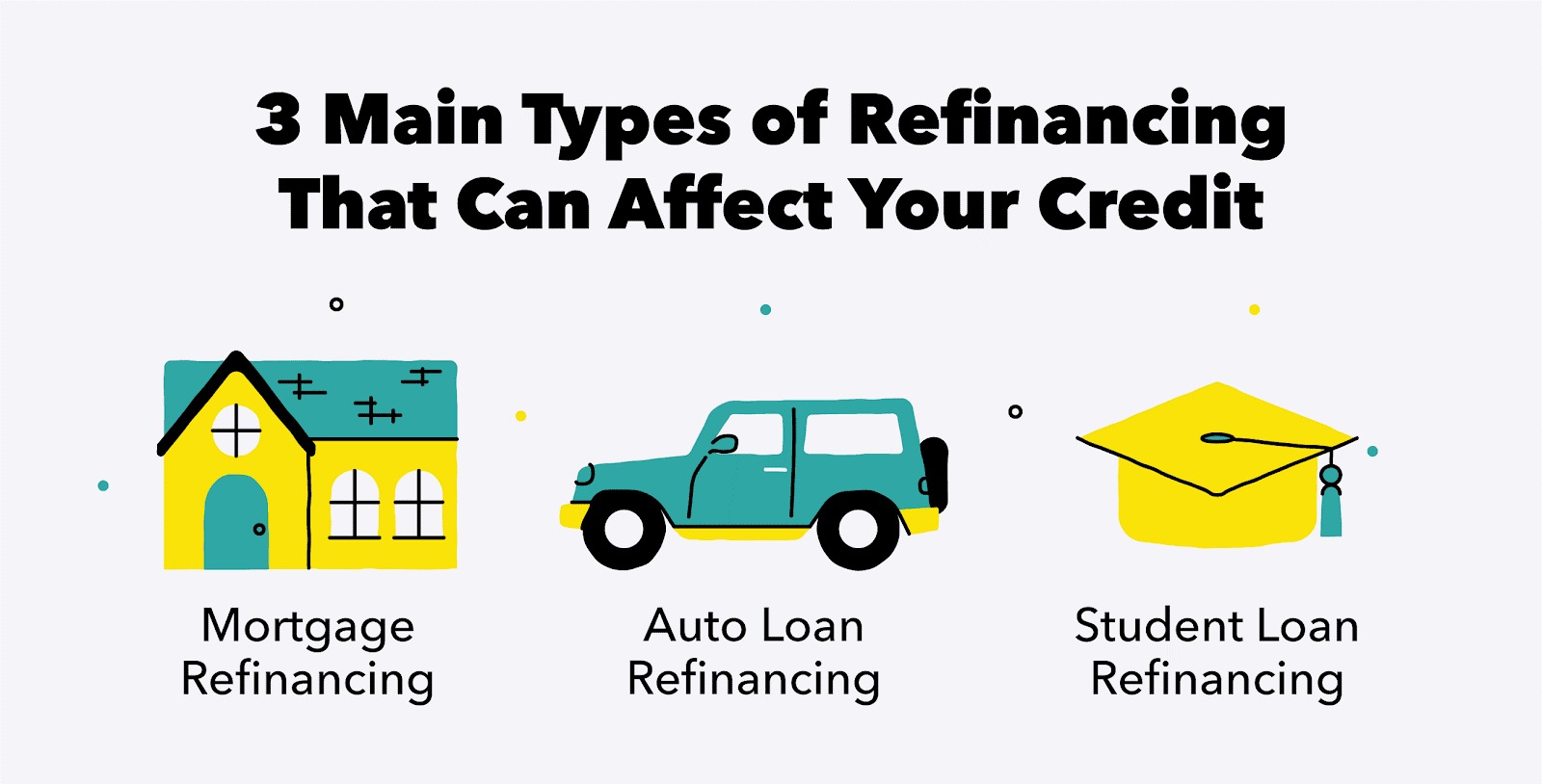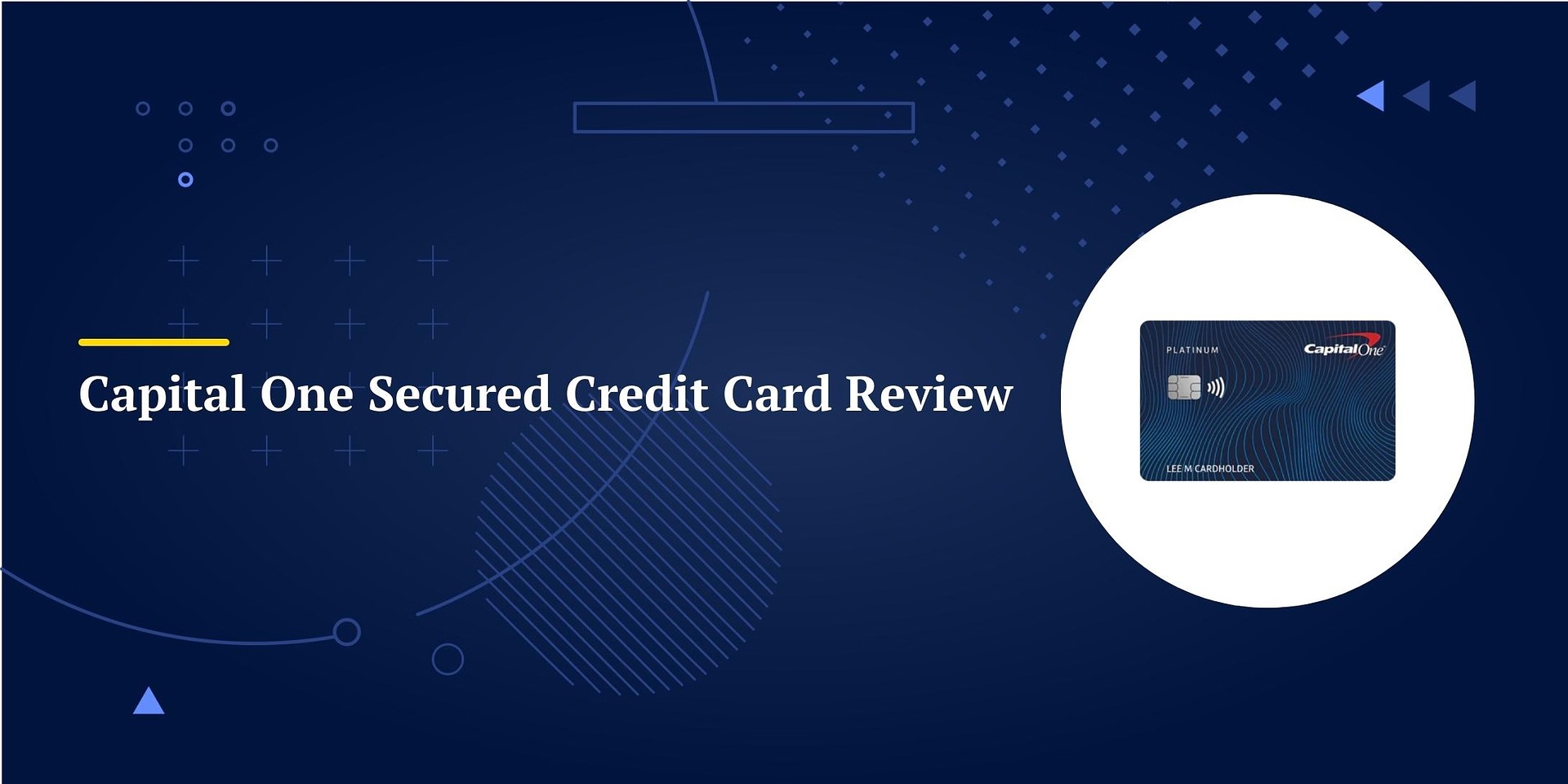Home>Finance>How Much Does Self Lender Raise Your Credit Score


Finance
How Much Does Self Lender Raise Your Credit Score
Modified: January 15, 2024
Learn how Self Lender can boost your credit score and improve your financial standing. Take control of your finances with our trusted finance solution.
(Many of the links in this article redirect to a specific reviewed product. Your purchase of these products through affiliate links helps to generate commission for LiveWell, at no extra cost. Learn more)
Table of Contents
Introduction
Welcome to the world of credit scores and the quest for financial stability. Your credit score plays a crucial role in your financial life, influencing the interest rates you receive on loans, the credit cards you qualify for, and even the ability to secure housing or employment. Building and maintaining a good credit score is essential, and many people are turning to innovative solutions like Self Lender to help boost their creditworthiness.
Self Lender is a unique credit-building tool that offers a different approach to rebuilding or establishing credit. Instead of relying on traditional credit-building methods like secured credit cards or personal loans, Self Lender utilizes a process known as credit builder loans to help individuals improve their credit scores.
In this article, we will delve into the world of credit scores, explore what Self Lender is all about, and understand how it works. We will also examine the impact of Self Lender on your credit score and discuss the potential drawbacks and alternatives to this credit-building option.
Whether you are looking to establish credit for the first time or aiming to improve your credit score, this article will provide you with valuable insights on how Self Lender can aid in your credit-building journey.
Understanding Credit Scores
Before diving into the details of how Self Lender can impact your credit score, it’s important to have a clear understanding of what credit scores are and how they are calculated.
A credit score is a three-digit number that helps lenders assess an individual’s creditworthiness. It provides a snapshot of a person’s credit history and helps lenders determine the level of risk associated with lending them money. The most common type of credit score is the FICO score, which ranges from 300 to 850, with a higher score indicating better creditworthiness.
Credit scores are calculated based on several factors, including:
- Payment History: This is the most important factor and accounts for approximately 35% of your credit score. It reflects whether you have made your payments on time, including credit card bills, loans, and other debts.
- Credit Utilization: This factor accounts for about 30% of your credit score. It measures how much of your available credit you are using. Keeping your credit utilization below 30% is generally recommended.
- Length of Credit History: This factor accounts for approximately 15% of your credit score. It considers the age of your oldest account, the average age of all your accounts, and the time since your most recent activity.
- Credit Mix: This factor accounts for about 10% of your credit score. It looks at the types of credit you have, such as credit cards, mortgages, and installment loans. Having a diverse credit mix can positively impact your score.
- New Credit Inquiries: This factor accounts for approximately 10% of your credit score. It takes into account the number of recent credit inquiries and new accounts you have opened. Multiple inquiries can temporarily have a negative impact on your score.
Understanding these factors is essential because it helps you grasp the importance of credit-building tools like Self Lender. By targeting specific aspects of your credit profile, such tools can help you improve your credit score over time.
What is Self Lender?
Self Lender is a financial technology company that offers a unique credit-building tool to help individuals improve their credit scores. Unlike traditional credit-building methods such as secured credit cards or personal loans, Self Lender operates through a process called credit builder loans.
A credit builder loan is a type of installment loan specifically designed to help individuals establish or rebuild their credit. With Self Lender, you essentially take out a loan, but instead of receiving the funds upfront, the money is deposited into a certificate of deposit (CD) or savings account. You then make monthly payments towards the loan, and once the loan term is complete, you receive the funds plus interest.
This approach allows individuals to demonstrate their ability to make consistent, on-time payments and establishes a positive payment history. As a result, Self Lender helps individuals build credit, even if they have limited credit history or previous credit challenges.
One of the key advantages of using Self Lender is that it provides an opportunity to build credit without the need for a large upfront deposit or incurring high interest rates. This makes it an attractive option for those who are unable to qualify for traditional credit cards or loans due to past credit issues or a lack of credit history.
Self Lender is available to U.S. residents in most states, and the company reports your payment history to all three major credit bureaus: Equifax, Experian, and TransUnion. This ensures that your credit-building progress is reflected on your credit reports and visible to potential lenders.
Now that we understand what Self Lender is and how it operates, let’s explore how this innovative credit-building tool can impact your credit score.
How Self Lender Works
The process of using Self Lender to build credit is straightforward and user-friendly. Here’s a step-by-step breakdown of how Self Lender works:
- Application: Start by visiting the Self Lender website and completing the application process. You will need to provide personal information such as your name, address, social security number, and employment details.
- Choose a Plan: Once your application is approved, you can select a credit builder loan plan that suits your needs. Self Lender offers various options with different loan amounts and terms.
- Make Monthly Payments: After selecting a plan, you will begin making monthly payments towards your credit builder loan. Self Lender sets up automatic payment withdrawals from your bank account, making it convenient and hassle-free.
- Loan Maturity: As you make your monthly payments, the funds are deposited into a CD or savings account that acts as collateral for the loan. Once the loan term is complete, you will receive the funds plus interest. Note that the CD or savings account is locked until the loan matures.
- Builds Credit: Throughout the loan term, Self Lender reports your payment history to the credit bureaus. As long as you make your payments on time, this positive payment history will be reflected on your credit reports, helping to boost your credit score over time.
It’s important to note that credit builder loans through Self Lender do not require a credit check, and approval is generally accessible to individuals with limited or poor credit history. This makes it a viable option for those who are looking to build credit from scratch or rebuild their credit after experiencing financial setbacks.
While using Self Lender, it’s crucial to budget and ensure that you can comfortably afford the monthly payments. Making timely payments is crucial, as any missed or late payments can have a negative impact on your credit-building progress.
Now that we have covered how Self Lender works, let’s explore the potential impact it can have on your credit score.
Impact of Self Lender on Your Credit Score
Self Lender can have a positive impact on your credit score when used correctly and consistently. By utilizing a credit builder loan and making on-time payments, you can slowly improve your creditworthiness over time. Here’s how Self Lender can impact your credit score:
- Payment History: Your payment history is a crucial factor in calculating your credit score. Making monthly payments on your Self Lender credit builder loan helps demonstrate responsible financial behavior and establishes a positive payment history. Consistently making on-time payments can boost your credit score over time.
- Credit Mix: Having a diverse credit mix is beneficial for your credit score. Self Lender introduces an installment loan into your credit profile, diversifying your credit mix beyond credit cards and revolving debt. This can have a positive impact on your credit score and show lenders that you can manage different types of credit responsibly.
- Length of Credit History: The age of your credit accounts plays a role in determining your credit score. When you use Self Lender, the credit builder loan becomes a part of your credit history. As the loan matures, it contributes to the length of your credit history, potentially increasing your credit score.
- Credit Utilization: Self Lender does not directly impact your credit utilization ratio since it does not involve revolving credit. However, as you build a positive payment history and demonstrate responsible financial behavior through Self Lender, you may become eligible for other credit products with higher credit limits. By effectively managing these new accounts, you can improve your credit utilization ratio over time.
It’s important to note that the impact of Self Lender on your credit score will vary based on your individual credit profile and the overall health of your credit. If you have a limited credit history or a low credit score, the potential for significant improvement is higher. However, if you already have a strong credit history and a high credit score, the impact of Self Lender may be more limited.
While Self Lender can be an effective credit-building tool, it’s not a magic solution that will guarantee a substantial credit score increase. It’s essential to use Self Lender alongside other responsible credit habits, such as making timely payments on other accounts and managing your credit responsibly.
In the next section, we will explore the factors that influence the credit score boost you can expect from using Self Lender.
Factors Influencing the Credit Score Boost
Several factors come into play when determining the extent to which Self Lender can boost your credit score. Understanding these factors can help you set realistic expectations and make the most of your credit-building journey. Here are the key factors that influence the credit score boost:
- Payment History: Consistently making on-time payments is crucial for building a positive payment history. Timely payments with Self Lender and other accounts can greatly impact your credit score. Any missed or late payments, on the other hand, can have a negative effect on your creditworthiness.
- Loan Term: The length of your credit builder loan term can affect the impact on your credit score. Longer loan terms provide you with more opportunity to demonstrate consistent and responsible payment behavior, which can yield a more significant credit score boost.
- Credit Mix: Building a diverse credit mix is beneficial for your credit score. Adding an installment loan like Self Lender to your credit profile can improve your credit mix and potentially increase your credit score. However, the impact may be more significant for individuals with a limited credit history and a less diverse credit profile.
- Existing Credit History: If you already have a long and positive credit history, the impact of Self Lender on your credit score may be less significant. However, if you have a limited credit history or previous credit issues, the credit score boost from Self Lender can be more substantial.
- Other Credit Factors: Remember that your credit score is influenced by various other factors, such as credit utilization, length of credit history, and new credit inquiries. While Self Lender can positively impact your payment history and credit mix, it’s crucial to address these other credit factors as well to achieve a comprehensive credit score improvement.
It’s important to note that credit-building is a gradual process, and improvements to your credit score may not happen overnight. Consistency and responsible financial habits are key to maximizing the credit score boost from Self Lender. Making on-time payments, managing your credit utilization, and practicing overall sound financial management will contribute to long-term creditworthiness.
Now that we have explored the factors that influence the credit score boost, let’s delve into the potential drawbacks of using Self Lender as a credit-building tool.
Potential Drawbacks of Self Lender
While Self Lender can be a valuable tool for building credit, it’s important to consider the potential drawbacks before deciding to use this credit-building option. Here are a few factors to keep in mind:
- Cost: Self Lender charges fees for its credit builder loans. Depending on the loan amount and term chosen, these fees can add up over time. It’s essential to factor in these costs when considering whether Self Lender is the right option for you.
- Locked Funds: With Self Lender, the funds you borrow are held in a CD or savings account as collateral for the loan until it matures. This means that during the loan term, you cannot access the funds. If you anticipate needing the borrowed funds during this time, Self Lender may not be the best choice for you.
- Time Commitment: Building credit is a gradual process, and it takes time to see significant improvements in your credit score. The loan term with Self Lender can range from several months to a few years, depending on the plan you choose. It’s important to be patient and committed to making consistent payments over the course of the loan term.
- Limited Credit Impact: While Self Lender can positively impact certain aspects of your credit score, such as payment history and credit mix, it may not have as significant an impact on other credit factors, such as credit utilization or new credit inquiries. To achieve a comprehensive credit score improvement, it’s important to address these other areas of your credit profile as well.
- Not Suitable for Everyone: Self Lender is not the right credit-building option for everyone. If you have a strong credit history and score, the impact of Self Lender may be minimal. Additionally, if you cannot afford the monthly payments or have unstable income, it may not be the best option for you.
Before deciding to use Self Lender, carefully assess your financial situation, goals, and credit needs. Consider alternative credit-building options and compare the costs and benefits. It’s crucial to make an informed decision based on your individual circumstances.
Now, let’s explore some alternative credit-building options that you may consider in addition to or instead of Self Lender.
Alternatives to Self Lender for Credit Score Improvement
While Self Lender is a popular credit-building tool, it’s not the only option available. If Self Lender doesn’t align with your financial goals or circumstances, here are some alternative ways to improve your credit score:
- Secured Credit Cards: Secured credit cards are a great option for individuals with limited credit history or poor credit. These cards require a security deposit, which serves as collateral in case of default. By using a secured credit card responsibly and making timely payments, you can build a positive credit history.
- Credit Builder Loans: Similar to Self Lender, there are other financial institutions that offer credit builder loans. These loans work by keeping the borrowed funds in a savings account or CD until the loan is paid off. As you make timely payments, it will help establish a positive payment history and boost your credit score.
- Piggybacking: If you have a trusted family member or friend with good credit, you may consider becoming an authorized user on their credit card. Their positive credit history can be reflected on your credit report, helping to improve your credit score. However, it’s essential to ensure responsible use of the credit card to avoid damaging your relationship or credit.
- Build Credit with Small Installment Loans: Some financial institutions offer small loans specifically designed for credit building. These loans have lower interest rates and shorter terms, allowing you to establish a positive payment history and improve your credit score.
- Pay Off Existing Debt: One of the most effective ways to improve your credit score is to pay off existing debt. By reducing your credit card balances, making regular payments, and avoiding late payments, you can positively impact your credit utilization ratio and build a better credit profile.
It’s essential to research and carefully evaluate alternative credit-building options to find the one that best aligns with your financial goals and circumstances. Consider the fees, terms, and impact on your credit score to make an informed decision.
Remember that regardless of the credit-building method you choose, it’s important to practice responsible financial habits. Make timely payments, avoid excessive debt, and monitor your credit report regularly to ensure accuracy and address any issues promptly.
Now, let’s wrap up and summarize the key points we covered in this article.
Conclusion
Building a good credit score is essential for financial stability and access to favorable borrowing options. Self Lender is a unique credit-building tool that offers a different approach to improving your creditworthiness. By utilizing credit builder loans, Self Lender allows individuals to establish or rebuild their credit by making on-time payments over a specific loan term.
While Self Lender can have a positive impact on your credit score by helping to establish a positive payment history and diversify your credit mix, it’s crucial to consider the potential drawbacks, such as the cost, locked funds, and time commitment.
If Self Lender doesn’t align with your financial goals or circumstances, there are alternative credit-building options to explore. Secured credit cards, credit builder loans from other financial institutions, piggybacking, small installment loans, and paying off existing debt are all viable alternatives to consider.
Remember that regardless of the credit-building method you choose, responsible financial habits are key. Make timely payments, manage your credit responsibly, and regularly monitor your credit report for accuracy.
In conclusion, building a good credit score takes time and effort. Self Lender can be a valuable tool in your credit-building journey, but it’s important to assess your individual situation and explore alternative options that may better suit your needs. With responsible financial habits and a strategic approach to credit-building, you can take control of your financial future and achieve a strong credit profile.

